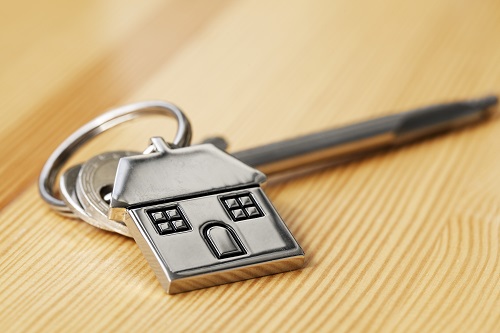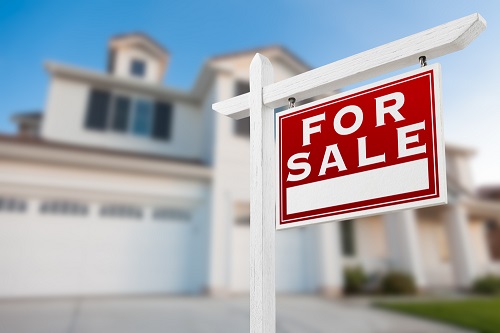
You may remember the first step, where you dealt with the emotions of home selling. You have a contract and now it’s time for the closing. You’ll likely feel all the emotions you felt while putting your home on the market again, but this time they will be more intense. Soon, your home will belong to someone else. The moment you close your door for the last time is a monumental one. You might feel a mixture of emotions, such as sadness, excitement, anxiety, and joy. You may feel relieved that the process has finally ended and you can start your next adventure.
Close your home before you move. This is usually the easiest part. You may encounter minor delays or major problems. You’ll be able to know what you can expect if you walk through the process of closing.
Home Selling: The Closing Process
What is Open Escrow?
The sale of your house is “open escrow” from the moment the buyer places their deposit in escrow to the point that the sale is complete. Many things can occur during open escrow. The buyer will complete their final loan documents and send them to the escrow firm. This process will continue up until the sale has been completed.
As the seller, you will be responsible for completing any repairs and making any modifications to the property agreed upon during the contract. Also, you’ll want to arrange for the transfer of utilities as well as make preparations for moving. You shouldn’t cancel your insurance right away. Keep your home insurance until the sale has been completed.
The Final Walkthrough
The buyer will conduct a final walkthrough before closing. It’s not an inspection but a way for the home buyer to ensure that you have completed the work agreed upon in the contract. This final walk-through is the last time you will be in your house unless you have worked out a delayed ownership agreement with the buyer.
Make sure that all closets, storage areas, and bedrooms have been cleared. Allow yourself a few extra days between the date you plan to move out and the date of your final walk-through. You should aim to leave the property at least two to three days prior to the buyer’s inspection. You’ll have more time to double-check your closets, attic, and garage and to address any problems that may arise. After clearing your home, inspect the walls, doors, and floors. Moving furniture may cause damage. Before the walk-through, touch up any scuffs and dents.
You’ll need to do one last thorough cleaning of your house before the walkthrough. Consider having your home professionally cleaned if you can. This final, thorough cleaning should include vacuuming air vents and scrubbing inside the oven. It may also include shampooing carpets. Avoid leaving any trash in your trashcan. You can work out a deal with your neighbor or request a special pickup from the waste disposal company.
It’s not necessary to gather all warranty cards and manuals for appliances. Instead, place them together in one location. You could even leave a sort of “How-To manual” with information about local restaurants, cell phone dead zones, and trash day.
 The Closing documents
The Closing documents
You may be surprised by the amount of paperwork required if this is your first home sale. The closing documents, prepared by the closing lawyer or escrow agent, must be notarized. It may seem like you’re buried under a mountain of legalese. What’s the point? Here are some documents that you may see at the closing, although every transaction and local laws differ.
- Certificate of Title (Certificate of Title): This document is a legal declaration that you are entitled to sell your property.
- Deed: The document that transfers the title. This document may be called a grant deed or warranty deed depending on where you reside. Once the deed has been signed, ownership will transfer.
- The HUD-1 Settlement Statement: This document outlines all of the financial transactions that were involved in the sale of the house. You and the buyer will fill out this form, which has columns for both. This document should be read carefully.
- Bill of sale: A detailed list of all the items that are being transferred, including furniture.
- Statement of Closing Costs: This is a description of closing costs and an acknowledgment that you have read and understood them.
- Statement of Identity/Information: The Statement of Identity (or the Statement of Information) declares that you are who you say you are. You will need a valid photo ID.
- This statement will indicate that any remaining money on your loan will be paid at the closing.
- Mechanic Lien: Although this document is not always included, it states that there’s no way a subcontractor can have a lien against the home due to non-payment. The document states that all previous repairs and renovations have been completed.
These instructions will be given to the closing agent by the lender. The document can be signed either at the beginning of the contract, or at its end.
What to bring to the closing
The closing attorney brings most of the documents to the closing. It’s now time to notarize, sign, and initial. Bring a few items to the closing, including:
- The deed of the house (if it has been paid for and there are no liens).
- Photo ID issued by the government, such as a driver’s license or passport
- The escrow company will receive a certified check
- The keys to your home
Each document, even though you may not have as many documents to sign as a buyer, is still important. Make sure you check everything and that the monetary transactions of the deal add up. Be sure that the date of possession is correct. Double-check that the loan is funded.
Transferring House Keys
It’s possible that you will never meet the person who is buying your home. The final walk-through is usually done by the Myrtle Beach real estate agent. Once all paperwork is signed, you will bring the keys to your escrow officer/closing lawyer’s office to hand over the keys. The buyer may close at a time different from yours, so the keys are delivered to the new owner after the deed has been registered by the county.
Congratulations! You have just sold your house. You’ve finally reached this point after all the cleaning, staging, and photographing. You’re probably looking back at the journey, and you think it was worth it. You’re going to love your new home!
Call Full Potential Real Estate, LLC now, and let our team help sell your home quickly at the best price possible.
Like our Facebook page for more great info about home selling and buying.
Full Potential Real Estate, LLC
Myrtle Beach, SC 29577
843-236-0203
http://fullpotentialrealestate.com


 What is a “Kick-Out” Clause?
What is a “Kick-Out” Clause? What if I don’t get an offer?
What if I don’t get an offer?
 After you have determined the price of your home, it is time to take pictures. You’ve probably already done the cleaning and staging and your house is ready for a camera. Take some time to upgrade your home, clear out space, and arrange furniture, if it’s not ready for the spotlight. Walk around your home (inside and outside) to make sure that everything is neatly arranged. That dish towel over the sink might be an eye sore in kitchen pictures, so remove it. Close the cabinet doors and lower the lids of the toilets. Also, put away bicycles, rakes or lawn mowers.
After you have determined the price of your home, it is time to take pictures. You’ve probably already done the cleaning and staging and your house is ready for a camera. Take some time to upgrade your home, clear out space, and arrange furniture, if it’s not ready for the spotlight. Walk around your home (inside and outside) to make sure that everything is neatly arranged. That dish towel over the sink might be an eye sore in kitchen pictures, so remove it. Close the cabinet doors and lower the lids of the toilets. Also, put away bicycles, rakes or lawn mowers. Consider including drone footage in your property listing
Consider including drone footage in your property listing
 Making Home Repairs
Making Home Repairs
 Get Organized
Get Organized

 Signing the Home Listing Agreement
Signing the Home Listing Agreement Protection Clause
Protection Clause
 For starters, each townhome in Sovereign Village Townhomes comes equipped with top-of-the-line appliances, including stainless steel refrigerators, dishwashers, and microwaves. The kitchens also feature granite countertops and custom cabinetry, giving you both style and functionality. (Note: this image is for an example only and is not an actual rendering of the kitchen in Sovereign Village Townhomes.)
For starters, each townhome in Sovereign Village Townhomes comes equipped with top-of-the-line appliances, including stainless steel refrigerators, dishwashers, and microwaves. The kitchens also feature granite countertops and custom cabinetry, giving you both style and functionality. (Note: this image is for an example only and is not an actual rendering of the kitchen in Sovereign Village Townhomes.)
 Important Steps to Take in Your Home Selling Journey
Important Steps to Take in Your Home Selling Journey